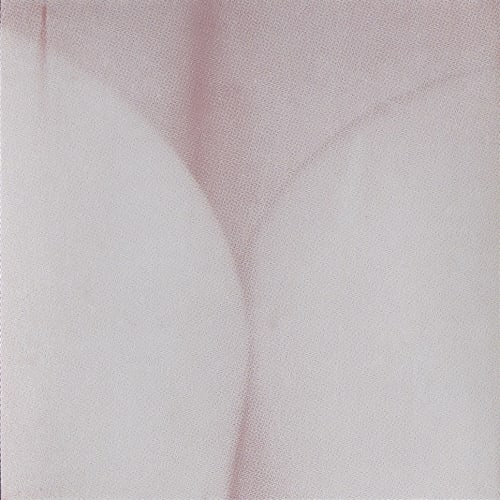“Candy Factory” an exhibition based on the collaboration between the late Genesis Breyer P-Orridge and Eric Heist. On view will be sugar-coated silkscreen paintings. The abstract composition is based on parts of the human figure without distinct identity or gender identification, yet the imagery is recognizable and desirable. The name for the project combines Candy Darling and Factory Records, an overlap between art and music.
Interview with Benjamin Tischer, Eric Heist and Bart Keijsers Koning.
Candy Factory
BREYER P-ORRIDGE/HEIST
February 18 – March 25, 2023
Opening Saturday February 18, 2023
Keijsers Koning is pleased to present “Candy Factory” an exhibition based on the collaboration between the late Genesis Breyer P-Orridge and Eric Heist. On view will be sugar-coated silkscreen paintings. The abstract composition is based on parts of the human figure without distinct identity or gender identification, yet the imagery is recognizable and desirable.
The collaboration between the late Breyer P-Orridge and Eric Heist started in 2000 with a presentation at Team, a renowned and provocative New York gallery that closed its doors in 2020. Breyer P-Orridge was generally known as a maverick within experimental music industry and searcher for a new cultural zeitgeist, this exhibition was one of the first re-infiltrations into the art world. Until then, most encounters with the art world had been of a performative nature rather than plastic, with showings through art troupe COUM Transmissions and their retrospective at the ICA (London) as far back as 1976.
Around 2000 Heist was creating sugar-coated silkscreen paintings of body-related imagery. Breyer P-Orridge was making photographic images of non-gender-specific bodies. Both Heist and Breyer P-Orridge were looking at fringes of culture and had a shared interest of context through images that transcended class and moved the narrative passed distinctions of identity and its relation to gender. The result is Candy Factory: pop-infused images and bodies without sex, age, class or race, a symbol for the one as well as the multiple. The name for the project combines Candy Darling and Factory Records, an overlap between art and music.
The duo revisited their collaboration in 2018 and created a set of thirty 22-inch square silkscreen on canvas panels. The imagery was derived from a Polaroid image of non-distinct nudity. A base color, which was one of the six primary and secondary colors (red, violet, blue, green, yellow, orange) was overlaid with the image using the five remaining colors in sequence of the color wheel. The process became a performative ritual in which other sets of sequential color and rotation of imagery suggests cyclical movement and continuity within the attraction of bodies to one another. The images and works in this installation all simultaneously exist independently and collectively. In the final exchange of text messages between Breyer and Heist, s/he texted in her unique manner: “Spending 5 Daze in the Horse Pistol – Butter Coum to the Nest” (spending five days in the hospital but come to my apartment afterwards). The continuity of Candy Factory – rotating, changing, moving from red to yellow to blue and back again – follows the continuity of existence itself, reassuring that death is not an end.
Alongside the Candy Factory works, the viewer can see Breyer P -Orridge’s video Pandrogeny Manifesto, 2006 in the back viewing room. The worksuggests that while some feel trapped in the “wrong” body, there are others, namely Breyer P-Orridge, who just feel trapped in a body. As Breyer P-Orridge told to Them in a 2019 interview: “We thought: well, what happens if we cut ourselves up and become one? Can we become a third being? And that’s the pandrogyne. It began as an expression of unlimited love, but then became research into why we feel this way, and what it implies about our position in society.”[1]
Biographies
Eric Heist (b. 1962) is an artist who works in multiple media imaging the complexities of power, time, and socio-political contradictions. Recent solo or two-person exhibitions include Kanal-Centre Pompidou (Brussels); Field Projects (New York); Galveston Artist Residency (Galveston, TX); Foundations, Schroeder Romero/Shredder (New York). His work has been included in exhibitions at Participant, Inc., Max Protetch, Ronald Feldman Fine Arts, White Columns, Roebling Hall, NY, Elizabeth Vallaix Gallery, Paris, and the Brooklyn Museum of Art, amongst others. He is a founder and director of Momenta Art since 1986, a not-for-profit exhibition organization. His work has been reviewed by Holland Cotter and Roberta Smith of the New York Times, William Powhida in The Brooklyn Rail, and Christian Viveros-Fauné in Art in America, among others. He received a Pollock Krasner Award in 2020.
Genesis Breyer P-Orridge (Manchester, England, 1950—2020) was a legendary singer-songwriter, musician, writer, occultist, cultural engineer, and visual artist. Breyer P-Orridge rose to notoriety as the founder of the COUM Transmissions art collective, which operated in Britain from 1969 to 1976. Breyer P-Orridge co-founded and fronted the pioneering industrial band Throbbing Gristle and the experimental multi-media outfit Psychic TV, paralleled by Breyer P-Orridge’s co-founding of the communal network Temple ov Psychick Youth. In 1993, P-Orridge and partner Lady Jaye embarked on the Pandrogeny Project, a living art concept that blended physical and psychological mediums testing gender constructs and creating the unified BREYER P-ORRIDGE. The archives of Breyer P-Orridge were acquired for the permanent collection of London’s Tate Britain in 2010. Institutional solo exhibitions include ICA, London; The Warhol Museum, Pittsburgh; Summerhall, Edinburgh; The Rubin Museum, New York; KANAL-Centre Pompidou, Brussels.
For additional information or images please contact the gallery at info@keijserskoning.com or 469.961.5391
